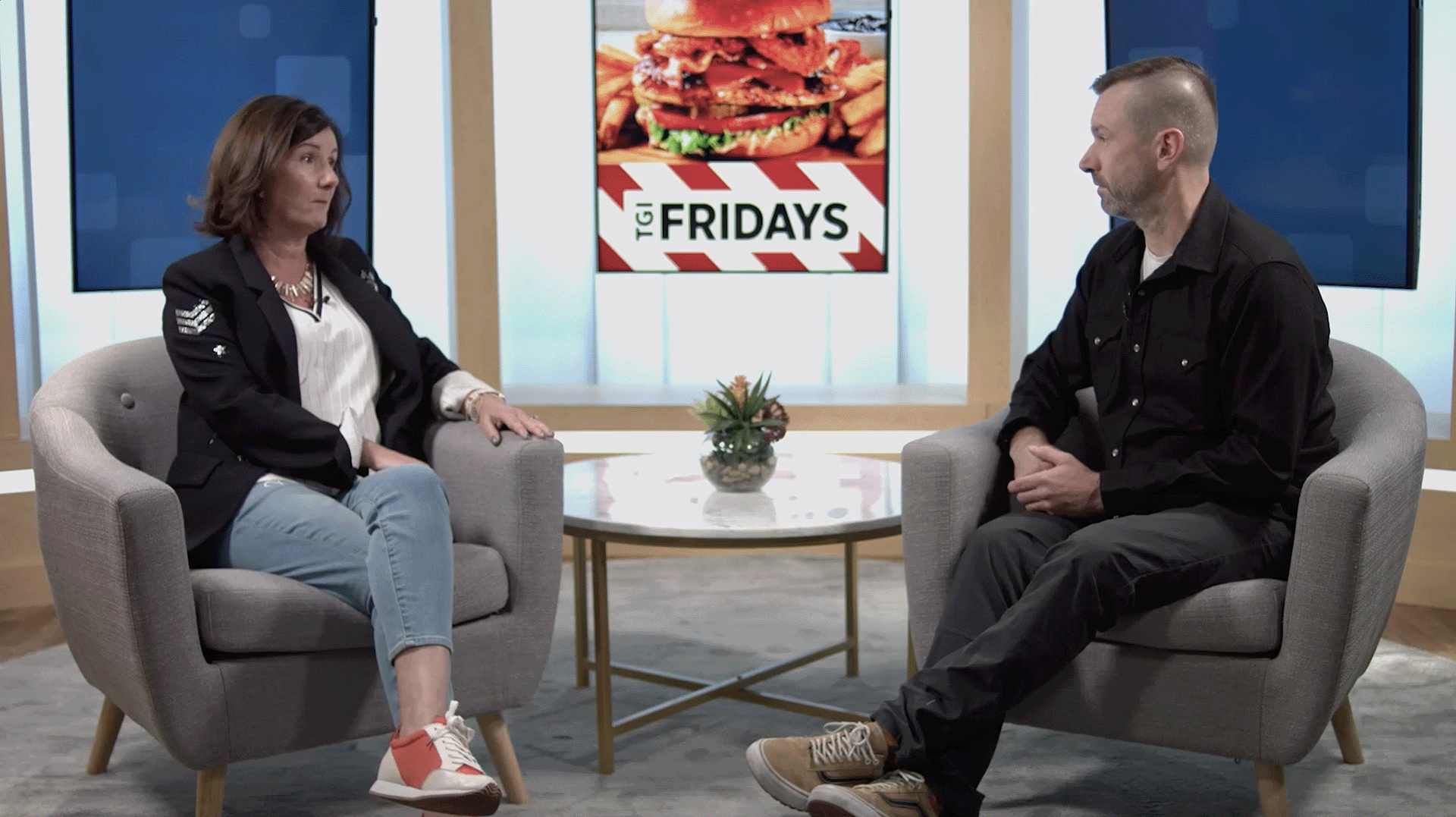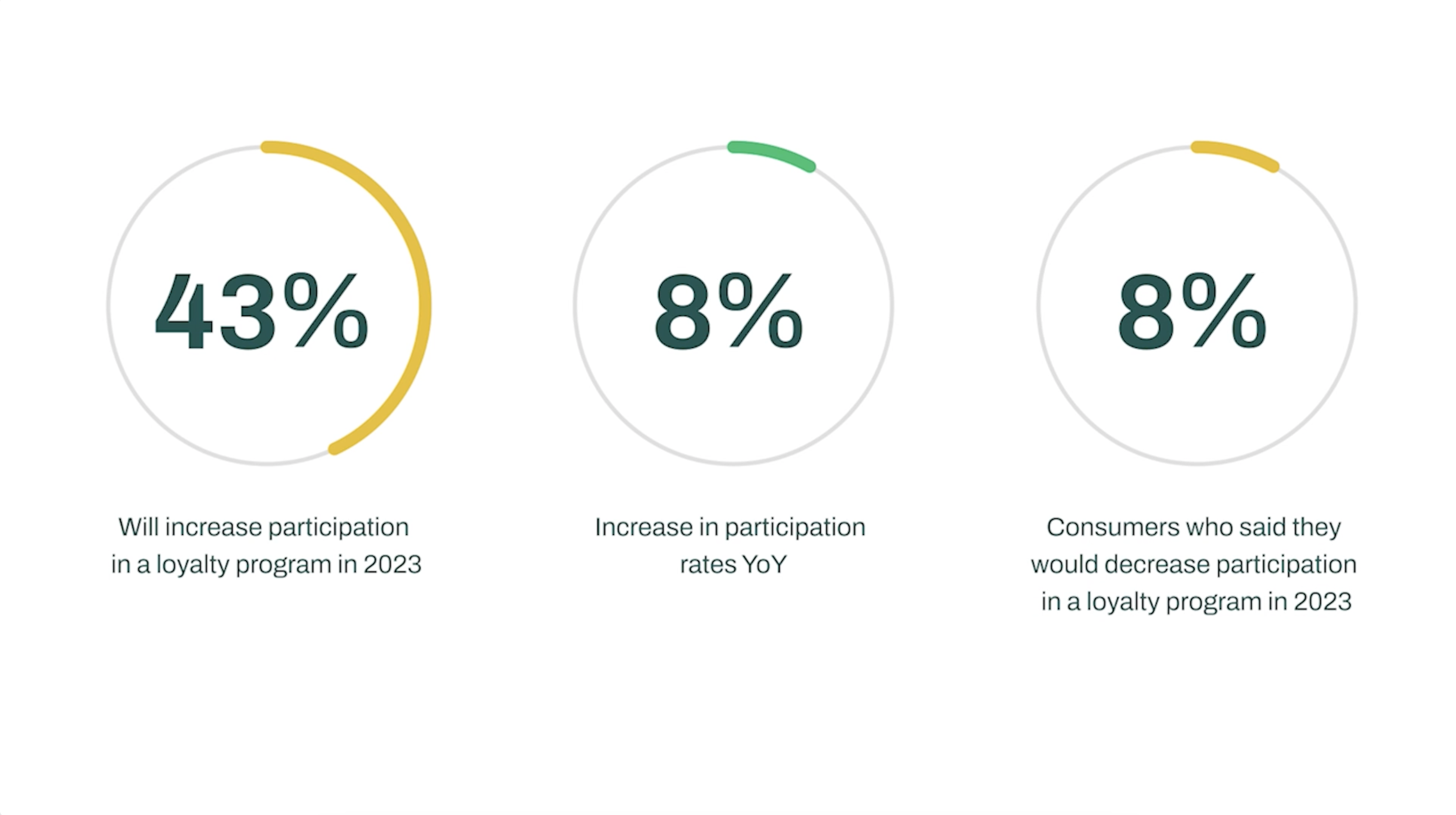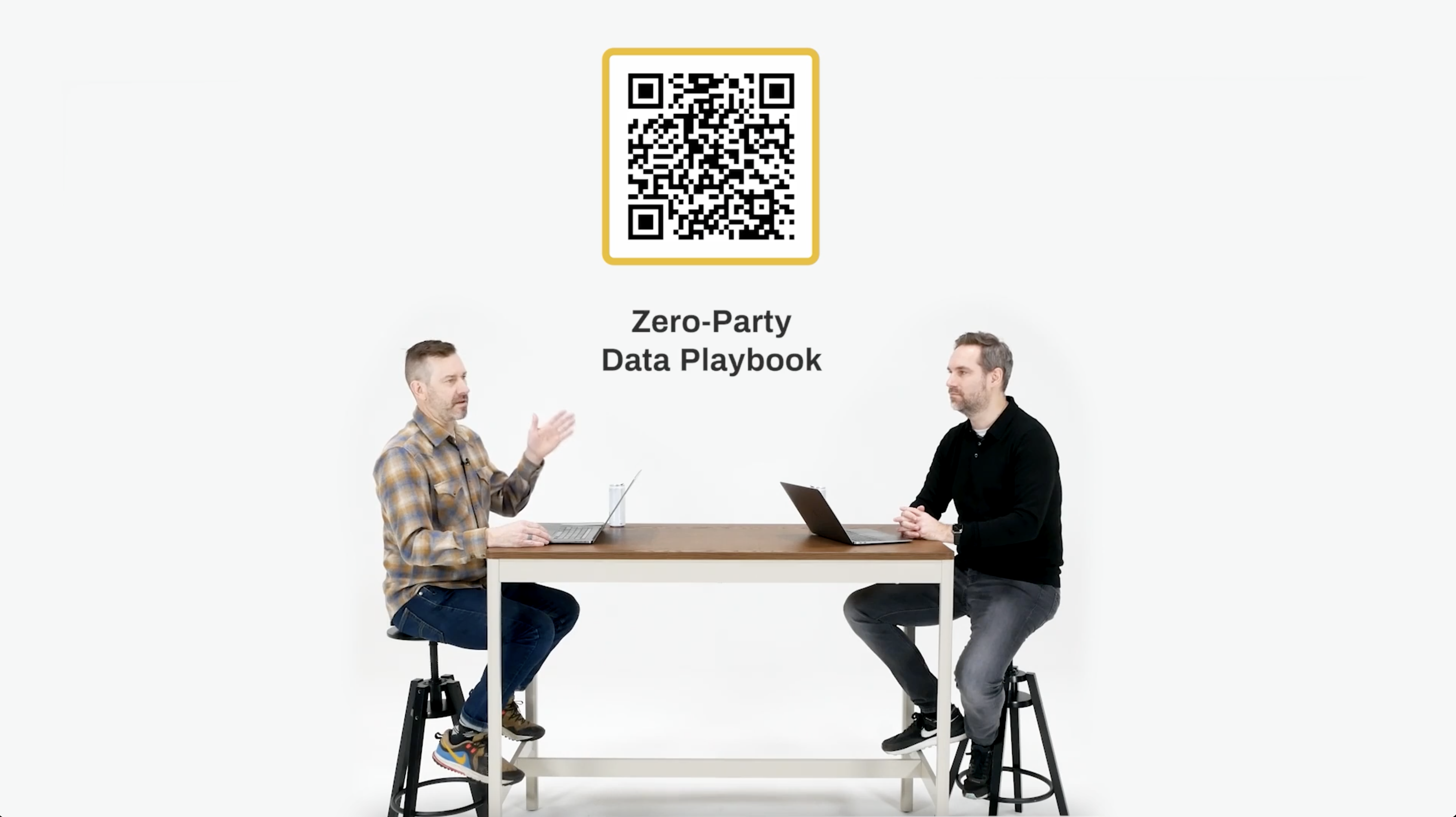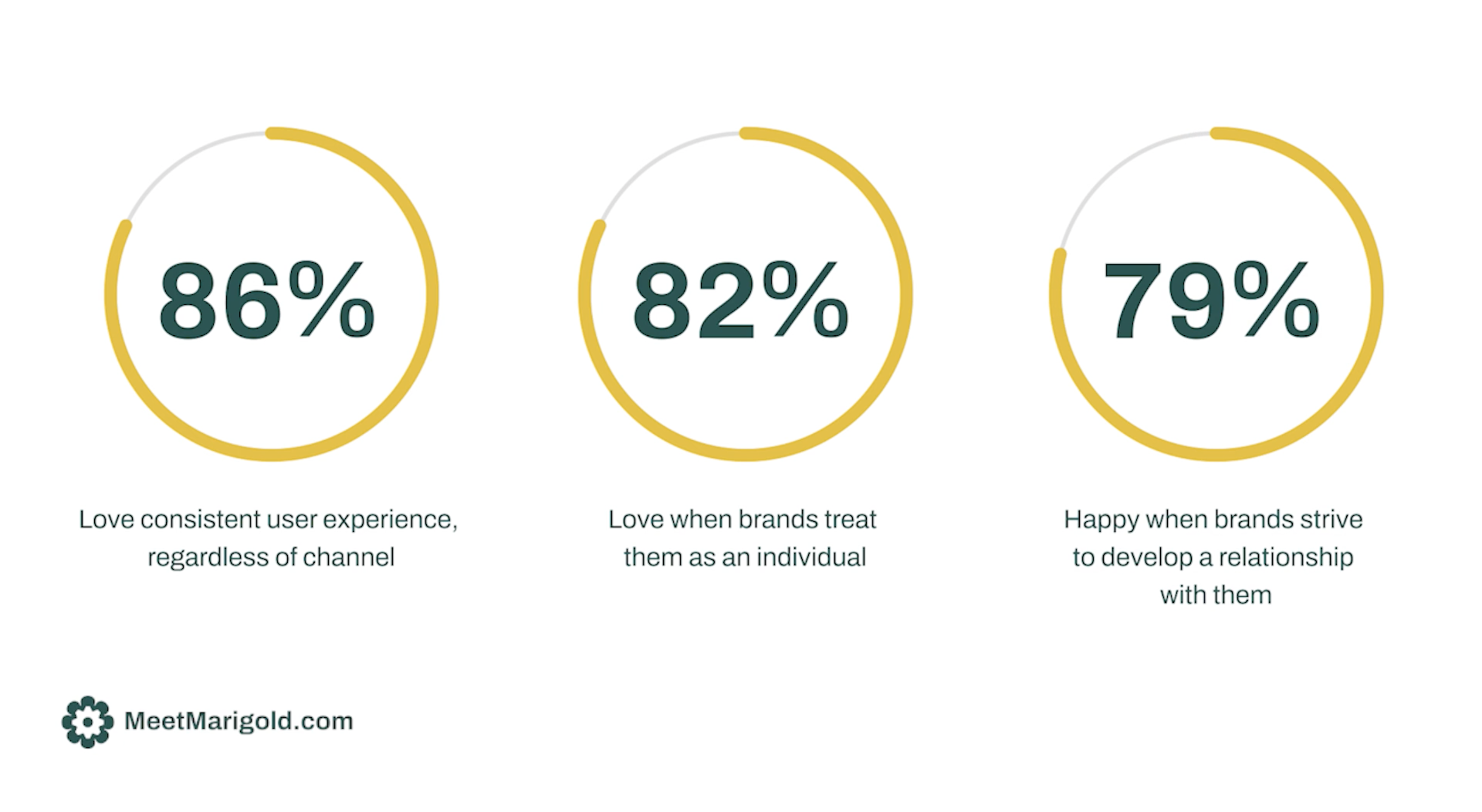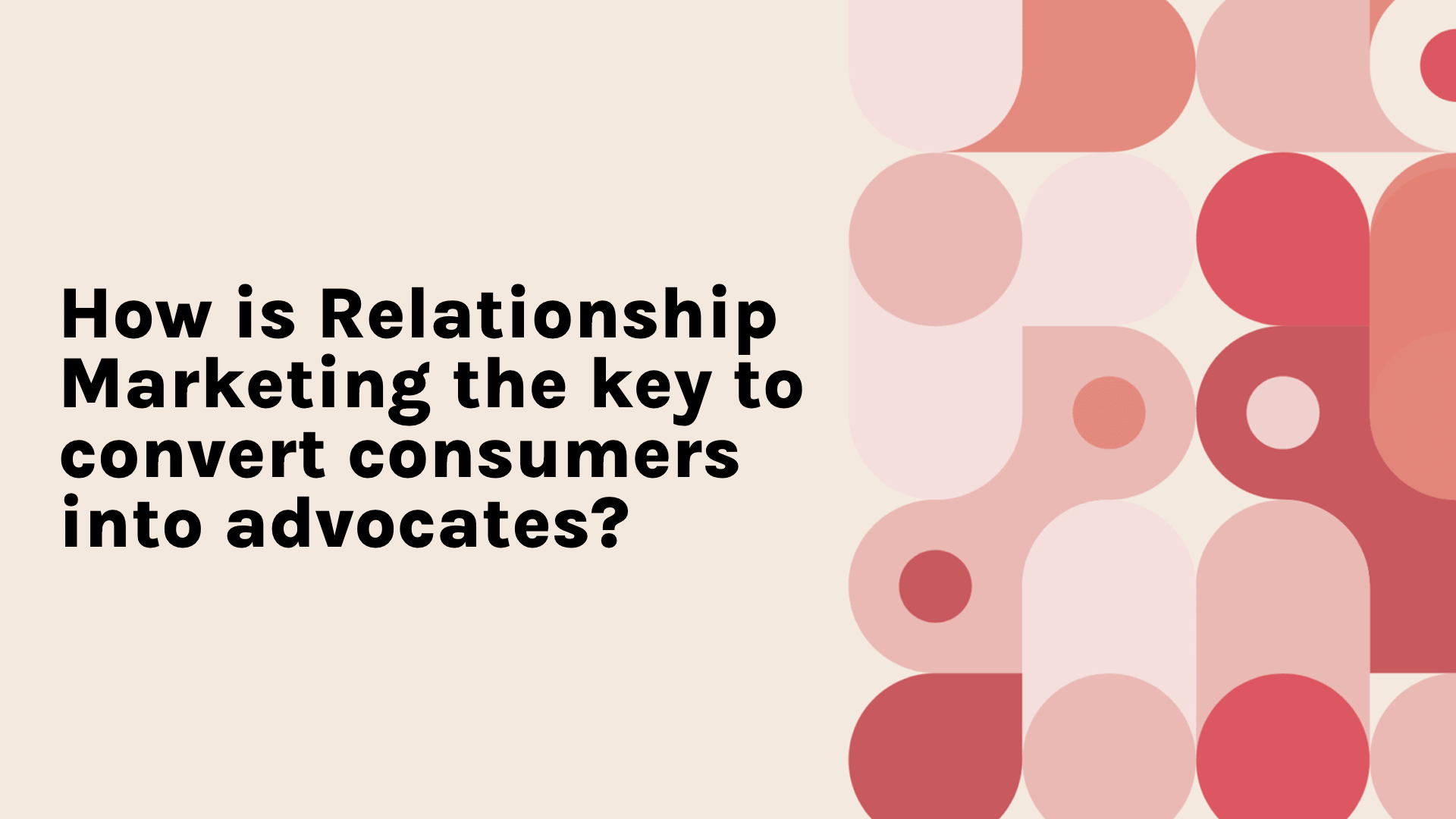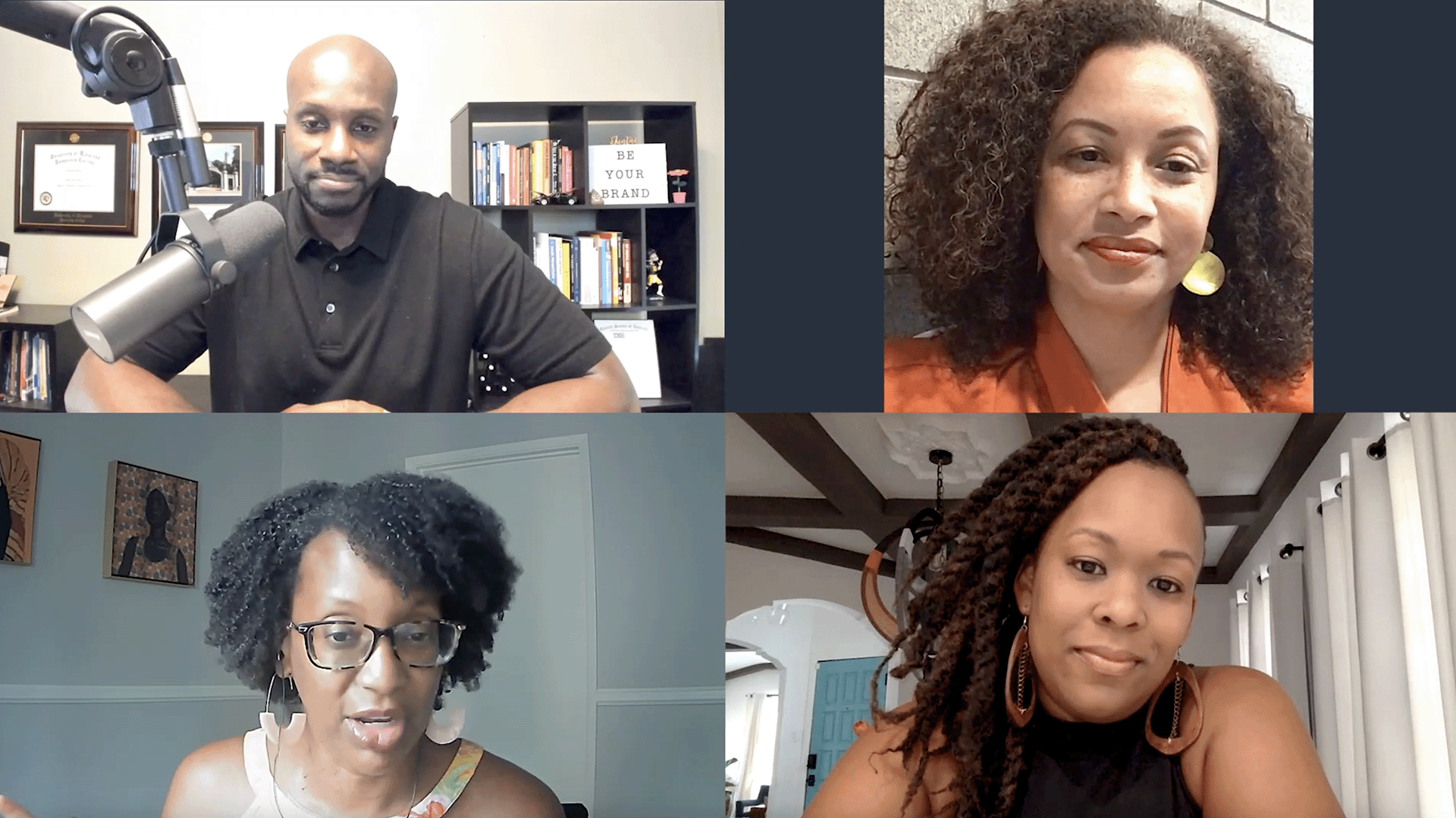Why You Must Invest in People to Be Successful With Your Martech Strategy
- 0.5
- 1
- 1.25
- 1.5
- 1.75
- 2
Tim Glomb: I am super excited for this session because I have with me Katie Knight, the chief revenue officer at TGI Fridays. Katie, thank you for meeting me here in Florida.
Katie Knight: Thanks, Tim. It is been a long time.
Tim Glomb: It has. We have to kind of say this up at the top. We've known each other for 30 years?
Katie Knight: I think so.
Tim Glomb: Almost 30 years.
Katie Knight: That's aging us though.
Tim Glomb: It is. But, today's the first time we've seen each other in at least 25.
Katie Knight: At least 25.
Tim Glomb: So we've caught up over LinkedIn and everything. So I'm going to dig into the dirt because I can go to places with Katie that I can't go with other CROs. But for everyone who doesn't know you...
Katie Knight: Sure.
Tim Glomb: Give me a little bit about your background. How did you get to chief revenue officer at Fridays, and where have you been in the food and beverage restaurant space?
Katie Knight: Sure. So, as you know, you and I started out in the music industry together, long, long time ago, we won't say how many years again. And then eventually, I ended up in the alcohol beverage industry. I worked for Miller Brewing Company for a long time, and that moved me all over the United States. I then went into the restaurant business with Carrabba's Italian Grill and Fleming's Prime Steakhouse and that got me into the casual dining sector. I then moved back into alcohol beverage and the retail side and ended up back in the restaurant business right when COVID was hitting.
Tim Glomb: Oh. Those were... We had some clients there. We know what a toll that took.
Katie Knight: Yeah. But today I'm the chief revenue officer for TGI Fridays, which is an iconic American brand. And it's one of the first places that I went to, to eat when I first moved to America in 1991. So it's always got a little bit of my heart.
Tim Glomb: That's right. And you're an Irish girl, you're-
Katie Knight: I am.
Tim Glomb: ...straight out and funny. I was just in Dublin and I ate at a TGI Fridays right there on the Liffey River.
Katie Knight: Fantastic.
Tim Glomb: River Liffey, is it?
Katie Knight: It's the River Liffey. Yes.
Tim Glomb: Okay. River Liffey. Well, great. So you're well established. I mean CMO positions, CRO positions, you really know from the top down what does it take to make it, especially in the restaurant business. And that's, we have a lot of viewers right now that are going to be from that restaurant space. So I want to ask you first and foremost. Here at the CM Group, we're partners, we are your messaging partner.
Katie Knight: Sure.
Tim Glomb: So can you talk a little bit about the technology you see as being critical and crucial to customer engagement, customer relationships?
Katie Knight: Yeah. So I think it's really important to establish which channels you're going to lean into, in the restaurant space. We have limited budgets, we have limited people and we need to have ways to engage with our guests on a daily basis that will drive the most revenue. So for us at Fridays, right now, that's email. So the email channel is really, really important to us because we can track every single piece of revenue that comes from that email and especially if there's a loyalty guest attached to that email as well.
Tim Glomb: Sure. So, all right, I get it. You look at one core and then build some ancillary channels on top of it.
Katie Knight: Yeah.
Tim Glomb: What are some of the other channels you look as secondary but still critical on top of email?
Katie Knight: So we use SMS. It's a little pricey but we use that as part of our plan to reach our guests. We use a lot of paid social, a lot of paid digital media. And we look for complete conversion all the way through to either an online order or to a visit into the restaurant. So through our media agency and through partners like you, we have access to a lot of data. The challenge for us sometimes is how do you aggregate all that data back inside in your company? How do you have the right people on this team to look at the insights and then make decisions as to what you do moving forward?
Tim Glomb: No, that's critical. And I want to talk about people, with you because I know you're a huge fan of that. But an email by the way, we found in our Consumer Trends Index, which we're going into our fourth year, email is the number one channel that consumers like to buy from. So I'm glad to hear that you're rooting that on email. But acquisition is a big part of that, right? You have to continually grow that email database. Do you have any thoughts on how the restaurant industry or how TGI Fridays is turning paid media and marketing efforts into actual email databases?
Katie Knight: Yeah. A lot of what our paid media efforts is around driving to an online order for pickup or for delivery. We want to convert that guest through getting their email address, so that we're able to remarket to them later. So for us, that is the most important channel. We've a very large amount of our business since COVID is now coming in through our online ordering channel, three times the business that it was pre- COVID.
Tim Glomb: Wow.
Katie Knight: So that gives us a huge opportunity. The second place is back where people need to be engaged in the business. The way to get people engaged with TGI Fridays at an email level is in the restaurant. Is to get people to sign up. Sign up for CRM program or better off sign up for a loyalty program and we get their email address with that.
Tim Glomb: Oh yeah. It makes total sense. And look, you have a captive audience. They're sitting at your table, maybe they just placed an order. What are they going to do between ordering and the food coming out? It's a great place to engage people.
Katie Knight: Exactly.
Tim Glomb: But also you're paid. You mentioned paid and everyone does paid.
Katie Knight: Yeah.
Tim Glomb: Are you seeing any trends there? Is social more important for converting into email? Is it truly just paid search? Someone looking for cheeseburger now near a restaurant near me on Google?
Katie Knight: So we change media agencies right in the middle of COVID with a pure digital shop out of Houston called True Media. And what we really like about them is its pure transparency all the way through to the conversion. And what we're seeing is that there's less impact now with channels and social. So Facebook and Instagram is delivering less conversions for us than local searches. And for us it's really people looking through local search or even through TikTok and using TikTok as a search engine. And we are getting the conversions that way. So our budgets as we went through the year, have started to move a little bit further away from social and more into direct paid search.
Tim Glomb: Wow. Well the walled gardens that are getting, those walls are getting higher and higher. Zuckerberg doesn't like to hear that because he wants your dollars.
Katie Knight: He does.
Tim Glomb: But that is interesting. That local search is really driving. Okay, cool.
Katie Knight: That's really what drives the business.
Tim Glomb: Well look, you and I talked before we started this. About people, and that's really what I want to get the heart of because you have great experience getting the right people into the right roles to make your investments in marketing technology, and everything else really come to life. Tell me at the top though, what's your mantra on finding the right people and why is that so important to running a marketing department?
Katie Knight: So I'm not necessarily looking for people who have big digital or tech backgrounds when they come into the marketing side in restaurant, hospitality, or retail. I'm looking for people who are curious. So if you're intellectually curious, you want to succeed and you want to learn. We can teach you anything. I'll give the example. You and I knew each other 30 years ago, Facebook didn't exist.
Tim Glomb: No, no. It was, we were just before Facebook.
Katie Knight: Just before Facebook, just a couple years.
Tim Glomb: 10 years or so.
Katie Knight: But we weren't buying digital media back then. I started buying digital media in my first casual dining role back in 2008. And it was a teeny tiny percent of the budget because most of it was on traditional media, on television or on local radio-
Tim Glomb: Mass media.
Katie Knight: ... mass mediaand local radio. Now, things have changed so much. And if we have people who have intellectual curiosity, you can teach them anything. Absolutely anything. I learned how to program a website during COVID, using YouTube videos because simply there was nobody left in the building. Everybody was furloughed and we couldn't update the website. So if I can learn it, then certainly somebody who's curious, who's in their twenties can as well. So we have a great program at TGI Fridays where we do a summer internship. We source directly from our local market, a lot of our college interns come from the University of Texas at Dallas. They come in for a paid internship and if it's something that they like and they're enjoying it, and we think it's a good culture fit, we'll offer them a full- time job after college. And we've been able to get some people who are really, really good on the data side. And honestly it's a back door for us to bring data analytics onto the marketing team. Generally in the restaurant business, you're reliant upon the finance team to do your data analytics for you. And that can be tough when that poor finance guy or girl has a whole bunch of other things that they're doing. If you're a publicly traded company, there's a lot of different reporting that they have to do. Even if you're privately held like we are at TGI Fridays, there's a lot of stress on that person, and we can't necessarily hire full- time marketing analytics folks on our team. So we go to the colleges and we get people who are curious about data and we teach them how to do it.
Tim Glomb: That's super cool. And look, I can empathize even here, we're B2B, right? We're trying to find companies like yours and match our solutions to them. And having that analytics view inside marketing is critical. But I think there's a trait, you kind of said subliminally, it's like they have to be curious, they have to be willing to lean forward. You lean forward with YouTube in the pandemic to figure something out. So you need go- getters.
Katie Knight: Totally need go- getters. And the whole restaurant business is really built on go- getters. And if you think about it, it's a lot of entrepreneurs who decided that they thought that they could do a better job at a restaurant. If you look back at the history of great American restaurant brands, they were developed by people who loved to eat out and who loved hospitality. And that's what we do at Fridays. Is we loved people who want to eat out, who want to come and be entertained in our restaurants, who want to have fun. And we're about people of all stripes. So we'll talk to anybody who's intellectually curious and who wants to come and join our team.
Tim Glomb: I love that, and you do. If you've never been to a TGI Fridays, you need to go in because you just described it. I mean, it's kind of the neighborhood place where you can go in. I go in every once in a while and grab a beer and watch a game with somebody. So, okay, you are a CRO.
Katie Knight: Yes.
Tim Glomb: You've been a CMO. The people out there right now, the managers, the marketing directors, how should they be talking to C- suite and leaders like you to get some of their ideas and their marketing ideas sold?
Katie Knight: They need to come with data.
Tim Glomb: Okay.
Katie Knight: So I am a very big proponent on data. So ideas are great, but then ideas need to be backed up with data and analytics, that it's worth making the investment behind it. So for example, a lot of what I do today is in virtual restaurants. So these are brands that we either license or we partner with other companies on, or we create ourselves, and we execute that brand out of the TGI Fridays' back kitchen and then we sell it through Uber Eats and DoorDash. So we do a lot of those brands right now. Those brands came to us. We look at the data behind those brands before we make decisions to whether we're going to invest behind them. So for me, even if it's an idea that doesn't exist yet, but you can put together some sort of analysis to what impact it's going to have on the business, then we make decisions if we're going to prioritize that and put resources behind developing the idea.
Tim Glomb: Let's go into that. Because the pandemic, it changed everything, right? Digital transformation, and when you say things like the traffic and orders at fridays. com is three times what it used to be pandemic. Clearly the pandemic shifted behaviors. Even my grandmother who has never text messaged before through the pandemic, learned how to do it and learned how to order and learned how to do these things that weren't innate to them. And virtual brands, especially for kitchen became a great thing, right? You were slow. How do you get more deliveries? How do you get more, keep that kitchen staff busy? How... What's the opportunity for a brand like Fridays through these virtual brands to kind of build a customer relationship? Maybe I order from one of your sub- brands, maybe I order from Fridays. How does that data and marketing perspective work?
Katie Knight: So initially it's a little bit difficult because majority of the orders are coming through some of the third- party delivery providers.
Tim Glomb: Intermediary like Uber Eats, et cetera.
Katie Knight: Exactly. They own the data and they don't want to share it with you.
Tim Glomb: Of course, then you wouldn't need them.
Katie Knight: Exactly. Some of the ideas we're working on now though, would shift that to a different marketplace and that would be a marketplace where we would own the first- party data, and then we could go back and gather zero- party data. So those are some of the projects that we're working on now. We still want to have the business that we have with the third- party delivery partners, but we believe that there's a bigger opportunity with other marketplaces.
Tim Glomb: Fair. And I think, I'm going to ask you a question and I know you're going to have a great answer. And if you're watching, don't think restaurant on this. Think big picture. I don't care what your industry is, there is an opportunity to expand. You're getting a ton of data on products, right? So let's say your virtual brand, what's one of your virtual brands?
Katie Knight: Krispy Rice.
Tim Glomb: Okay, great. So you go, you make that product, you start to see how it's being sold, whether or not you're the cash register, whether it's Uber Eats, Grubhub, someone down chain, you still know how much product in a particular area is being sold and delivered.
Katie Knight: Exactly.
Tim Glomb: How does that, from a product development perspective tie back into Fridays? Does that change your menu? Does that keep you relevant?
Katie Knight: Yeah. I think it absolutely helps keep us relevant. So some of the work we've been doing with Krispy Rice is testing whether we have a late night opportunity at the bar by serving Krispy Rice at the bar at TGI Fridays. So that was an idea that came up. We tested it. And some of our restaurants, specifically in California where Krispy Rice is more well known, are doing close to 40% of their total Krispy Rice sales are coming from inside the restaurant. So people are dining in-
Tim Glomb: Wow.
Katie Knight: ...menus on the table. And I think it kind of brings this slightly more younger relevancy to TGI Fridays. We're an iconic American brand, we've been around for 50 years, but we all need a little bit of updating every now and then. And if we can appeal to an audience that's maybe looking for something a little bit more healthier, and we can bring them in without having to put a bunch more salads on the menu because those never really sell. But Krispy Rice is fun and interesting and it's actually seems to be working.
Tim Glomb: And checks a box.
Katie Knight: Yeah.
Tim Glomb: How about from a people perspective? Can you reverse that flow? Can you say, " Hey, at Fridays we're starting to see three times more traffic. People that only usually came in once a month are now ordering twice a month." I'm making these numbers up, but is there another flow to say, " Hey, here's what's happening in the main restaurant inside the actual store, that's why we need to go get or create this type of virtual brand." Does it go the other way?
Katie Knight: I think it can. I mean, to be honest, I haven't seen that trend yet other than in the chicken wars. So one of our first virtual brands Conviction Chicken was based on a spicy chicken sandwich, and that came out of a bit of what was happening in the QSR area between Popeye's and Chick- fil- A. There was a lot of chicken sandwiches happening. So we kind of leaned into that. What we found though was that a virtual brand that's successful is one that has a little bit more brand awareness and may already be a brick- and- mortar restaurant somewhere else.
Tim Glomb: Got it.
Katie Knight: So we partner with Wow Bao. Wow Bao has brick- and- mortar restaurants and then you have over 600 locations as a virtual restaurant. We're their largest enterprise partner and it does very, very well for us and it's Asian buns.
Tim Glomb: Wow.
Katie Knight: I know, it's crazy.
Tim Glomb: Well it's cool. It's kind of like what a lot of retailers in grocery have done a store inside a store, right?
Katie Knight: Yeah.
Tim Glomb: Starbucks is in almost every grocery store now. You've got some banks, you got some things. So key partnerships, but product development. How about, I'm going to put you on the spot a little bit about customer relationship. How important coming out of the pandemic, digital transformation, how important is it to have that digital relationship with your customers moving forward?
Katie Knight: It's the most important thing that we do. It absolutely is because that's how we measure the life cycle of that customer. It's how we keep that customer with us as they go through life's journey, because we tend to be introduced to brands, young, by our families. We go through a life cycle where we find other brands and then we come back to the brands that we know and love when we're in that stage of life. For us it's super important. Everything that we do from email and all of our digital touchpoints is about building the profile of who that guest is. And in the future, knowing there'll be new tech advancements in the future, how are we going to continuously market to that guest and what channels will be important at that time.
Tim Glomb: That makes sense. You got to skate to where the puck is going to be, not where the puck is right now-
Katie Knight: Exactly.
Tim Glomb: ... so you always haveto be thinking about the future. You mentioned loyalty a little earlier. How important is a loyalty program, a true strategy around loyalty? Not, " Hey, we have you in the email database, we're going to email you every three weeks." What's your thoughts for the future of loyalty in the restaurant space? What's it look like?
Katie Knight: I think loyalty, whether you're in the restaurant or retail space or whatever type of industry you might be, is the most important thing. You want to create a relationship with that guest. They want to feel like they have a relationship with you and you want to be top of choice when they come to be within that category. So when people go out to eat at night and when you're sitting at home and asking your family, " We're having takeout tonight, what does everybody want?" Well the first thing you start with is cuisine type. You go Mexican, Italian, Chinese, what type of pizza, what type of food we want? And then you go down to brands.
Tim Glomb: Got it.
Katie Knight: So if you choose Italian, then you start working through maybe up to five restaurants, right?
Tim Glomb: Your options.
Katie Knight: Your options. You're never going to go more than five because that's just going to cause an argument at home.
Tim Glomb: Yeah. Been there.
Katie Knight: You then are going to think, " Oh, well I have a loyalty program." At one of those, so that brings that brand to the top. Because you want to engage with that brand, you know you're going to get rewarded for doing it. And we get the data, and we get to understand you more and market to you better and in a more personalized way. For me, I don't like CRM programs or loyalty programs that treat everyone the same. Okay? Now, I travel a lot for my job and there's a particular hotel brand that I like to stay at and I am doing everything I can this year. Even having to do a mileage run to a hotel, to get to that elite level. Because I had a relationship with that brand for 20 years and it's very important to me, and they treat me like I have that relationship with the brand, it's a personal relationship. When I check in, I get acknowledged and things like that. So in the restaurants it's the same thing. Now, I think the challenge for the restaurant space is how do you get the server to acknowledge that the guest is a loyal member? And that again is through being able to give them a tablet or a handheld device that indicates that this guest is a loyal member.
Tim Glomb: And the right data so that they can act on that-
Katie Knight: Exactly.
Tim Glomb: ...and treat somebody. And I've heard that... I've never worked in the hospitality or restaurant business, but I understand some tables are nicer if they're a new guest. You want to have a great experience and to keep on the-
Katie Knight: Exactly.
Tim Glomb: All right. Well, points are one way to reward people, you just said that. " Hey, we want to have Italian tonight. Cool. I have an app for this one, let's go there." How about emotional loyalty? We're big on getting brands to start thinking about non- financial transactions as an actual reward. In fact, again, the Consumer Trends Index, I think the second most favored recognition from a brand would be just that, " Hey, just recognize me." Right? " Yeah. If I buy 10 pizzas, give me one free." That's point for purchase.
Katie Knight: But that's transactional, right?
Tim Glomb: It is transaction.
Katie Knight: It's not emotional. So you think-
Tim Glomb: How about emotional?
Katie Knight: You travel a lot, right? What's the-
Tim Glomb: I get to your point. I get handwritten business card notes from pilots because I fly so much. inaudible
Katie Knight: But to me the most, and I think to many people who travel a lot. The most important thing is being first to board and getting your bag in the bin above right before everybody else comes up.
Tim Glomb: Fair. I would love to be the last one on the plane, but I will be the first one because of that.
Katie Knight: Yeah. I always want to be first because I don't want to have to check my bag, that costs the airlines nothing, right?
Tim Glomb: It does. Yeah.
Katie Knight: So with Southwest for example, you get do enough flights, you get priority boarding. And many, many of the airlines do that. So I think when we recognize where the pain points are within a customer's experience and how we can reduce those in a non- financial way, that's really important. So for example, at TGI Fridays, if we were to have a program that, if there was a line and you were a platinum member of our loyalty, you get to skip the line and save 20 minutes of your day waiting in line and you get the next table. And so those are things that we've played around with, things that we're considering.
Tim Glomb: And that's a real world. Again, not being in a restaurant person, I have definitely had the kids in the car and drive around and see, especially if you're in tourist areas, you'll see the line outside. People have the little buzzers they're waiting. Now, if I knew. I was loyal and I could skip that line, almost like Disney and the FastPass and everything.
Katie Knight: Exactly.
Tim Glomb: I probably would pull into some chains restaurant and park and go in because I could skip that line.
Katie Knight: Yeah. But I agree with you. It's not always about the points for free food. It's about how do we create those connections that take some of the friction out of having an experience with us.
Tim Glomb: I love it. Okay. I want to ask you something and I'm not sure where it's going to go. But subscriptions have been a big topic in all industries. Do you have any thoughts on where the restaurant industry might go with subscription plus loyalty?
Katie Knight: Sure. I think there's two different ways to think about subscriptions. One is subscription for a food item or an experience that I might enjoy several times. So I see that there's value in buying that in a bulk way where I might get a discount, that then kind of locks me into having to visit. So that's the point of a food or experience subscription. With a loyalty subscription. I'm a little less convinced on that. So there's a couple of restaurant chains out there who've recently launched a monthly subscription for loyalty. I'm just not sure that the benefits that are being offered are enough to encourage me to pay more than I'm paying for my New York Times digital subscription monthly.
Tim Glomb: I hear you. So the value of the subscription really is table stakes. It hasn't really up it, but you're still getting in this recurring revenue. So the brand is getting greedy with that recurring revenue, but they're not really providing extra value.
Katie Knight: And my fear is, what happens a lot of times in a corporate setting is there's a great idea that's brought to the table and by the time it's discussed and all the financial analysis is done, it bears no resemblance to what the original idea was. So I call it the vaporization effect. So if something is created in a boardroom, you think it's a great idea. You go out to the field and you train it and you execute it and when you pop in to check on how your idea is doing, it bears absolutely no resemblance to what the original idea was. So it has vaporized away because it has been hacked to pieces before it gets to the customer. So I'm a big believer in making sure we know what the consumer wants first. So what is the insight, what is the consumer looking for? And then build it backwards in the right way that it's financially manageable for the company, but it still delivers on the promise that you were going to give to the guest.
Tim Glomb: Now, I totally believe it. And before I joined here at the CM Group, I was a marketer and we did that. We used our database, we'd go out and we'd ask consumers, " What do you want? Do you want a better plant? Cool. What are the attributes do you want from it? We'll go build it." So I am a huge believer in that, which comes to zero- party data. What's the future of zero- party data and understanding that Tim loves the mountains, et cetera. What do you think the future of that is?
Katie Knight: Well that goes back to the relationship you're having with the brand. So if you, the more you trust the brand, the more data you're willing to give them. And the restaurant business, we've generally asked people, " Tell us when your birthday is, when's your anniversary? What type of pasta do you like to eat? What's your favorite pizza topping?" That's maybe not enough yet, but I think you have to have, the more relationship you have with the brand, the much more willing you're going to be to hand off information.
Tim Glomb: Absolutely.
Katie Knight: I'll tell you. The hotel brand that I mentioned earlier, they know everything about me. They know absolutely everything about me from my room preference to not being near the elevator, high floor, what type of pillows I want in my room, how many extra towels I want. They know all of that because I've told them that. But that's because I have a trusting relationship with that brand.
Tim Glomb: You got to build trust. Trust is huge. All right, well I have one final topic I want to get into, because you mentioned earlier insights and analytics, and how you're farming people from interns into the marketing department with, some with a data analysis perspective. We would like to think that our platforms that we use and you use for your messaging and email, et cetera, are marketing friendly, right? People out there, they're either gone, " Yeah. I have a platform that's not very marketing friendly." " Yes. When you said I got to request something from an analytics data team, I get it six days later, that's not just in time marketing, that's too late." How do you see our platform, the Cheetah Digital Messaging platform for your marketing team?
Katie Knight: Well, I think one of the things that drew us to the platform was the ability for us to be able to manage it ourselves once we'd had a very quick training session with Cheetah. So it was marketer friendly and you didn't have to have a degree in analytics and to be able to use it. And as I said, we've been able to bring in a lot of college- age people who wouldn't have a lot of real world work experience yet, and within a couple of days they're up and running on the Cheetah platform. To us, it's really important. So when we look at tech stack within restaurant and retail industry, you have to bear in mind that you're not necessarily going to have a team of data scientists sitting in your office, being able to help you run that tech stack. That just unrealistic. At most, you might have two, at best, you might have one or you might be share, have a shared service within the business. So companies like Cheetah that can bring dashboard analytics and access to data where we can quickly run segmentations and then look at personalizing messaging are super important. So it's got to be layman's marketing data, but done in a sophisticated way in the background that you're delivering the data and the analytics to us in a way that we can use it.
Tim Glomb: You're very articulate about this, you obviously know what you're doing and it's great because you hit me on LinkedIn when I was doing my podcast series last year and you said, " Hey, I'm looking for a platform. Is this one legit?" I was like, " Yeah, it is. You should check it out." And I'm glad that you became a client and we're able to do this.
Katie Knight: This is fantastic. Thanks.
Tim Glomb: This has been great. Well look, I'm not going to bug you with anymore because I do want to come back. I want to see you next year in 2023. I want to have the same conversation, start looking at the future, what trends are coming to life and where Fridays is going.
Katie Knight: Great. Thanks Tim.
Tim Glomb: This has been awesome. All right. Hope you enjoyed it. We have plenty of other content on our website. All industries, all verticals, all channels. Go check it out and thanks for watching.
DESCRIPTION
When it comes to successful marketing strategies you must invest in solid technology. But what's that investment without the right people to manage it, to launch campaigns and to glean the insights from it? Katie Knight is CRO at TGI Friday's and has always been a big believer in getting the right people in place to manage technology investments and ensure you hit your goals.
Takeaways:
- You have great tech but no one to run it, what's the next step?
- How to get executive buy in on your tech + people plans.
- What insights and KPIs make the most sense for your program?
Today's Guests

Tim Glomb


